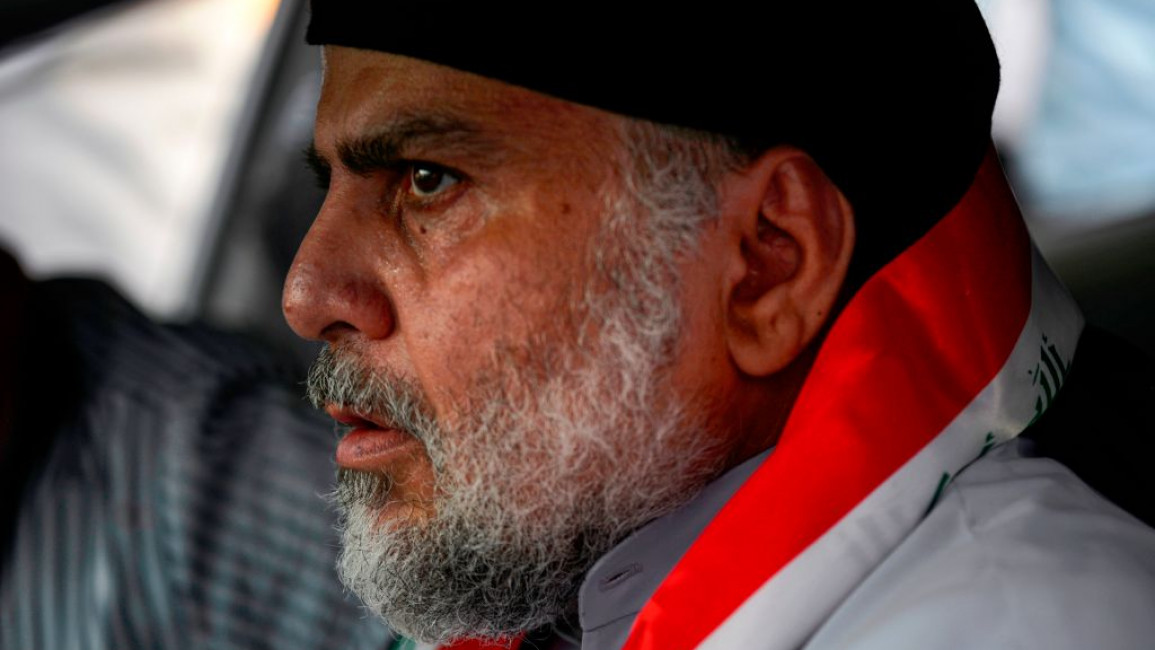Iran's Supreme Leader Khamenei urges Sadr to unify Iraq Shias
Iran's Supreme Leader Ayatollah Ali Khamenei has urged prominent Iraqi politician and cleric Muqtada Al-Sadr to unify all Shia Muslims in Iraq amid a political deadlock.
Khamenei sent a letter to Sadr - a prominent Iraqi Shia Muslim figure - via Esmail Qaani, the commander of Iran's Quds Force, who visited Iraq this week.
The general was in Iraq to address politicians ahead of a sensitive parliamentary session that was due to take place on Monday to find a solution to the ongoing political crisis in the country.
Pro-Tehran parties have rejected the results of Iraq's general election in October, which saw these groups lose out to other blocs, including Sadr's political movement.
Khamenei's letter stressed the need to "unify the Shia political house, and that it is Islamically prohibited to separate the Shia forces", according to local Shafaq News Agency.
Sadr reportedly told Qaani to notify Khamenei that he is working on a majority government project, with a number of Shia political parties.
He will, however, exclude the head of the State of Law Coalition and former Prime Minister Nouri Al-Maliki, despite Khamenei insisting on his participation in the process
Iraq's parliament failed to elect a president as the quorum was not met due to several key parties boycotting the vote, which was postponed indefinitely.
Two-thirds of parliamentary votes are required for the election of a new president, who will then entrust the largest coalition in parliament to form a government.
Qaani had already visited Iraq several times over the past few weeks to smooth out tensions between pro-Iran political groups and press for the formation of a new government.
Pro-Iran parties fared poorly in the 10 October vote and decried the results, slamming the process "a fraud".
Parties now have to negotiate with the Sadrist Movement, which is led by Sadr and is the biggest vote-winner in the last elections.
The Quds Force is responsible for Iran's military operations abroad and has played a key role in supporting the Assad regime in Syria and Shia militias in Iraq.



